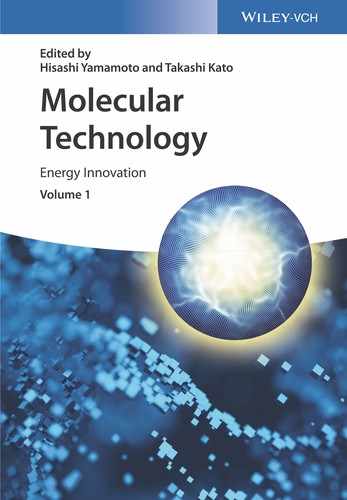Foreword by Dr Noyori
As an affiliated institution of the Japan Science and Technology Agency (JST), the Center for Research and Development Strategy (CRDS) navigates the latest global trends in science, technology, and innovation to aid the Japanese government in formulating its national strategies. Molecular Technology is the outcome of a research project born of a CRDS Strategic Proposal realized under the excellent editorial supervision of Hisashi Yamamoto and Takashi Kato. To them and to the scientists who have made major advances in molecular technology through their uninhibited research, I extend my heartfelt congratulations and respect.
The significance of molecular science in all areas of scientific endeavor is certain to increase. Accurate understanding of molecular assemblies and molecular complexes is essential for comprehending the elaborate workings of natural phenomena and of the genesis and mechanisms of materials and life functions. Now, more than ever, science must be seen as a single entity, a comprehensive whole. Mathematical science and the most advanced technologies of observation and information help us to explore the essence of materials and substances in a way that brings together all fields of science. It is the nature of molecular science to continually advance and expand. Using the metaphor of light, we can say that molecules behave in the manner of both “waves and particles.”
The traditional separation of science into physics, chemistry, and biology no longer applies. Neither does it make any sense to maintain those seemingly self‐contained subdivisions of organic chemistry, inorganic chemistry, physical chemistry, or polymer chemistry. So long as specialized groups and rigid educational systems cling to outdated perceptions, the more important it is to encourage an “antidisciplinary” type of science in which diverse fields converge rather than conventional interdisciplinary or transdisciplinary attempts to link diverse fields.
Molecular Technology, while firmly grounded in fundamental scientific knowledge, aims for practical applications within contemporary society. Johann Wolfgang von Goethe once said, “Knowing is not enough; we must apply. Willing is not enough; we must do.” Technology with no practical application is meaningless to society. Researchers should not hesitate to set their own themes and topics of exploration in academia where self‐determination holds strong and creativity wins the highest respect. Researchers must show ingenuity in the pursuit of their chosen mission even as they fulfill their duty to pursue science‐based technology for society. Never forget that it is by no means advisable to function purely as a support for activities that industry should actually undertake on its own.
The creative outcomes of the Molecular Technology Project launched in 2013 in conjunction with new collaborations are certain to lead to a wide range of innovations and to make significant contribution to achieving the Sustainable Development Goals (SDGs) of the United Nations' 2030 Agenda.
Science is one; and the world is one. Those who will follow us have a responsibility to the world after 2030, and it is my hope that new generations will pioneer revolutionary molecular technology that will bring science and humanity ever closer together. Brain circulation and international collaboration are essential to achieve these goals. V. S. Naipaul, winner of the 2001 Nobel Prize in Literature, once noted that knowing what you wanted to write was three‐quarters of the task of writing. Humanity's future is to be found in the unbounded imagination of the young and in its ability to support the challenges they undertake.
December 2017
Ryoji Noyori
Tokyo, Japan
